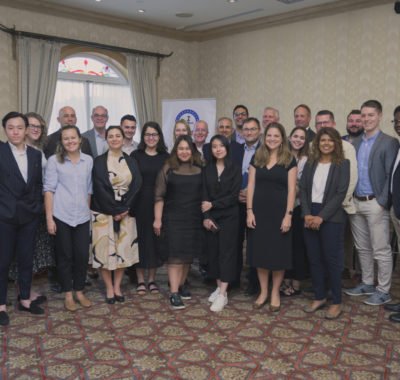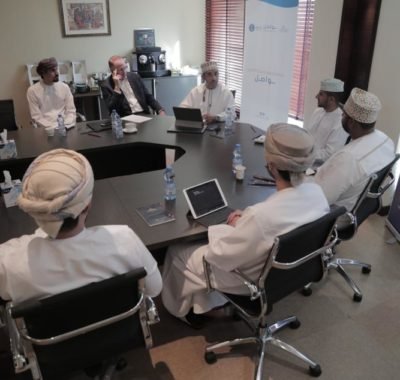Retrieved from: Addleshaw Goddard
Since December 2019, the coronavirus has continued to cause varying degrees of concern around the world. Whilst the economic consequences may take time to be fully understood, disruptions to supply chains are already emerging.
For commercial entities that have been or may be impacted by such disruption, now is a prudent time to consider what avenues of relief may be available in Omani law governed contracts. Namely, the concepts of Force Majeure and Unforeseen Circumstances. Whilst these concepts are often overlooked at the time of contracting, they can have important consequences in times of disruption and turmoil.
FORCE MAJEURE IN OMAN
At its simplest, the principle of force majeure can be defined as an unforeseen circumstance preventing a party from fulfilling its contractual obligations.
Force Majeure is a longstanding feature of both civil and common law jurisdictions. Even prior to the enactment of the Oman Civil Code[1] (Civil Code) in 2013, force majeure was recognised in Omani jurisprudence[2]. The Omani courts had held that an event of force majeure was any event that prevented a party from performing its obligations under the relevant contract for reasons outside its control, and which could not reasonably have been foreseen by the party asserting the claim.
The Civil Code and the resulting codification of commercial law principles brought further clarity. Article 339 of the Civil Code (Impossibility of Performance) provides:
‘The Obligation shall be extinguished if the debtor proves that the fulfilment thereof become impossible due to a foreign cause beyond his will’
The word ‘impossible’ requires a high threshold to be established by the party asserting a force majeure event under the Civil Code. Accordingly, the mere fact a contractual obligation has become more onerous due to an unforeseen event will not provide a basis to invoke Article 339.
However, relief may be obtainable via other provisions of the Civil Code (discussed below).
COMMON CONTRACTUAL PROVISIONS
More commonly, force majeure is typically addressed in the express provisions of a contract. Such provisions may or may not provide a broader definition of force majeure than contemplated by Article 339.
For example, many standard form contracts in the construction industry seek to define force majeure events broadly, by providing express examples of such events. The FIDIC standard suite of contracts that are commonly used for private sector projects in the GCC refers to ‘Exceptional Events,’ meaning an ‘event or circumstance which:
- is beyond a Party’s control;
- the Party could not reasonably have provided against before entering into the Contract;
- having arisen, such Party could not reasonably have avoided or overcome; and
- is not substantially attributable to the other Party.'[3]
Public health events are not among the examples expressly defined to amount to an ‘Exceptional Event.‘ However this is of limited consequence as the definition is not limited to solely such examples.
As an interesting aside, early irritations of Omani Standard Conditions of Contracts, many of which are still in use, expressly state events such as ‘plague, quarantine’ and ‘epidemics,’[5]may constitute force majeure events.
UNFORESEEN CIRCUMSTANCES
Entities experiencing adverse impacts from the disruption caused by the Coronavirus would be well advised to contemplate the Civil Code’s treatment of ‘unforeseen circumstances.’
Article 159 of the Civil Code provides:
‘If general exceptional accidents that were unforeseen at the time of contracting occur and result in that the execution of the contractual obligation, even if not impossible, become burdensome to the debtor and threaten the latter with serious loss, the court may, according to the circumstances and after balancing the interests of both parties, reduce the burdensome obligation to a reasonable limit. Any other agreement to the contrary shall be void.’
Notably, Article 159 is one of a handful of provisions of the Civil Code that cannot be contracted out of by parties. Initially, it may seem that this principle and force majeure are similar concepts. This is not the case. There are important differences.
Unlike the treatment of force majeure in the Civil Code, where the relevant contractual obligation can be deemed ‘extinguished’ (i.e. terminated), Article 159 merely provides for the relevant contractual obligation to be reduced or in other words, lessened. The underlying contractual obligation itself will continue, albeit with some form of alteration to ease the burden on the obligor.
Whether or not performance has become oppressive due to an ‘unforeseen event’ and threatens a party with ‘serious loss’ is a matter of fact in each case. A court or arbitral tribunal considering an application for relief under Article 159 would need to determine, amongst other things, a causal link between the unforeseen event and that performance has become unduly burdensome. The financial capacity (or incapacity) to the obligor to absorb the effect the unforeseen event will be integral. The resulting impact on the counterparty will also be considered.
Given the reference to ‘serious loss,’ an objective assessment of the obligor’s overall financial standing would be relevant. A mere dent in an obligor’s balance sheet due to increased costs in performing an obligation will be unlikely to suffice. A degree of exorbitance is arguably required.
PRACTICAL STEPS
Parties that are experiencing adverse impacts due to a suspected event of force majeure or unforeseen circumstance should:
- Promptly obtain legal advice to explore what avenues for relief may be available under the contract and the Civil Code;
- Not assume force majeure clauses will give rise to relief in every instance; and
- Maintain detailed records to justify the financial consequences of any such events.
Ultimately, the speed of the Coronavirus is a timely reminder of the importance of ensuring due consideration is given to how sudden events can displace the contractual bargain.
For any questions on the above article please contact Nic Henderson, Managing Associate at n.henrikson@aglaw.com

















